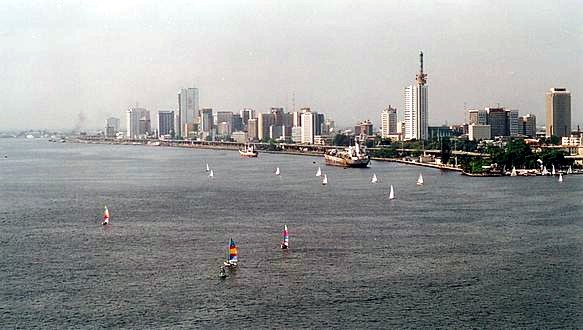 | |
| Formation | 2012 |
|---|---|
| Headquarters | Lagos State Secretariat, Ikeja |
General Manager | Funke Adepoju |
| Website | lswrc |
Lagos State Water Regulatory Commission (LASWARCO) is an agency of the Lagos state government under the supervision of the Lagos State Ministry of the Environment and Water Resources. [1] The commission is a regulatory body empowered by "Lagos State Water Sector Law (LSWSL) 2004 and Lagos State Environmental Management Protection Law, 2017" to protect the long term interests of consumers by regulating the activities of individuals, businesses and companies involved in the production, treatment, packaging, distribution, sales, supply and use of water in the state. [2] [3] [4] [5] The commission ensures acceptable standard by curbing unwholesome water production and indiscriminate drilling of boreholes in Lagos state. [6]
Contents
The commission began operation in 2012 with the mandate of protecting residents from unhygienic water consumption by ensuring water supply and wastewater management services are properly carried out in the Lagos State. [4] The head office of LSWRC is located at the Lagos State Government secretariat, Ikeja, Lagos State. [7]